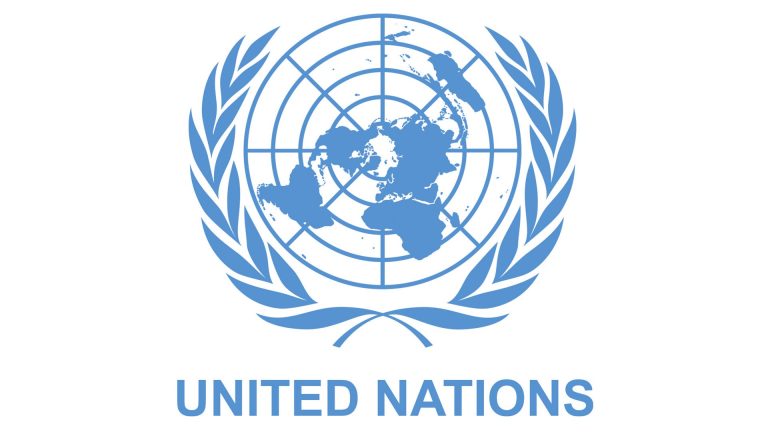The United Nations has stated that Nigeria’s rising debt, rising inflation charge and its affect on the welfare of the residents, places the nation vulnerable to declining financial progress in 2024.
The UN made this recognized in its World Financial Scenario and Prospects report for 2024 initiatives made accessible to The PUNCH on Monday.
The PUNCH experiences that Nigeria’s inflation charge stood at 28.2 per cent, with a debt profile of about N87.38tn by the second quarter of 2023 from N49.85tn in first quarter, which quantities to about 75.35 per cent improve, in keeping with the Nationwide Bureau of Statistics.
The UN additionally estimated a rise in Nigeria’s progress charge, from 2.9 per cent in 2023 to three.1 per cent in 2024.
The WESP is a report produced by the United Nations Division of Financial and Social Affairs, in partnership with the United Nations Convention on Commerce and Growth, and the 5 United Nations Regional Commissions.
In keeping with the report, Nigeria’s coverage reforms enacted in 2023, particularly within the hydrocarbon sector, contributed to a average enchancment within the nation’s progress prospects for 2024, with the three.1 per cent Gross Home Product progress forecast.
“Coverage reforms enacted by the federal government of Nigeria in 2023, particularly within the hydrocarbon sector, have contributed to a average enchancment within the nation’s progress prospects for 2024, with GDP progress forecast at 3.1 per cent.
Nevertheless, ballooning public debt, persistent inflation and a rising price of residing, along with a weak enterprise atmosphere, will pose a downward danger to progress prospects,” the report said.
The doc additionally famous that efforts to spice up native oil refining capability would doubtless scale back home gasoline prices in 2024 and past.
The UN report said world commerce remained low in 2023, with Africa representing a part of the development and nearly no year-on-year progress in merchandise commerce quantity in Africa in 2023.
The report predicted an enchancment in Africa’s GDP progress in 2024, rising to three.5 per cent on common, whereas externalities are projected to stay unfavourable for the African economies because of a weak world financial outlook and restricted exterior financing alternatives.
“Nevertheless, a restoration in home demand is projected for these international locations that skilled financial shocks stemming from foreign money depreciations, electrical energy shortages or armed battle,” it added.
It additional said that whereas developed international locations channel investments into sustainable sectors, growing international locations wrestle with capital flight and decreased overseas direct funding.
In keeping with the doc, the worldwide commerce as a progress driver was dropping steam, with world commerce progress weakening to 0.6 per cent in 2023, and projected to get well to 2.4 per cent in 2024.
“Growing international locations face challenges reminiscent of excessive exterior debt ranges and rising rates of interest, making entry to worldwide capital markets troublesome. Decline in official improvement help and overseas direct funding for low-income international locations contribute to debt sustainability challenges,” the doc said.
In keeping with the report, tight financing circumstances in worldwide capital markets – deriving from the financial coverage stances of the USA Federal Reserve and the European Central Financial institution– restrict exterior financing and refinancing alternatives for African economies.
“Consequently, African currencies – excluding the institutionally pegged CFA Franc – confronted a depreciation pressures because of weak export earnings and restricted exterior financing inflows.
“Whereas these deteriorating exterior circumstances restricted the scope for financial growth, issue reminiscent of armed conflicts, political instabilities, excessive local weather occasions, and infrastructure bottlenecks additionally depressed home demand progress.
“GDP progress in African economies is forecast to register average enchancment in 2024, in rising to three.5 per cent on common,” the report identified.
The UN defined that efforts to advertise stronger intra-regional commerce in Africa, embedded most notably within the ongoing implementation of the African Continental Free Commerce Space (AfCFTA), are but to bear fruit.
“The consequences of local weather change proceed to pose vital downward dangers for the financial system in Africa. Of the 68 local weather susceptible international locations that make up the Weak 20 Group, 28 are African,” the report confused.
“The change charge pass-through from substantial foreign money depreciations raised the home costs of imports and elevated inflationary pressures. Furthermore, excessive gasoline costs resulted in larger transport prices, which have been handed on to customers within the type of larger native costs for important objects reminiscent of meals.
“Meals inflation remained elevated, above 30 per cent, for a few of the bigger economies, together with Nigeria, Egypt and Ghana. The member international locations of the Central Financial institution of West African States and the Financial institution of Central African States, nonetheless, managed to maintain their inflation charges considerably decrease than these of different African economies,” it said.
